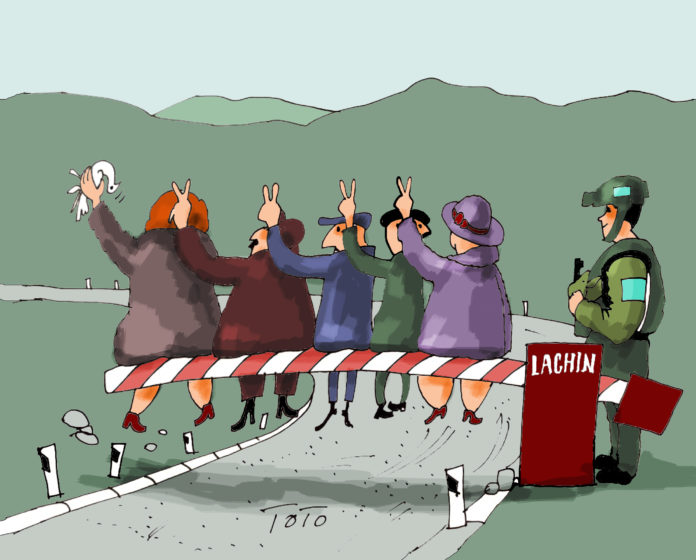Global political players prey on and use the misery of smaller nations to score political gains. In the case of Kosovo, the West was vitally interested to break up the former Yugoslavia and even used NATO forces to create a Muslim nation in the heart of Europe.
In the case of Karabakh, no one seems to be interested in the plight of the Armenians trapped in that enclave, nor does any party appear to be interested enough to cynically score some political points through standing up to provide aid during this miserable situation. And thus, the lifeline between Armenia and Karabakh remains blocked, creating a humanitarian disaster.
Azerbaijan seems to have developed a playbook which guides its actions and its hybrid war against Armenia. Baku, when it attacked Armenia’s sovereign territory in September 13, had not anticipated the world reaction that followed that brief war. This time around, it is moving in a more calculated way to strangulate the people in Karabakh, with the ultimate goal of depopulating that enclave and simultaneously extracting a price from Armenia, in terms of having unhampered access to the “Zangezur Corridor.”
Words of condemnation have come from major centers of power, which have not thus far deterred President Ilham Aliyev in his determination to continue his policy of ethnic cleansing. They all call for the implementation of the November 9, 2020 tripartite declaration, signed by Moscow, Yerevan and Baku.
There is also some disingenuous intent in all those calls, which render them ineffective; thus, United Nations Secretary General Antonio Guterres has expressed concern about the ongoing blockade of the corridor, following his meeting with Armenia’s Foreign Minister Ararat Mirzoyan. But the statement was issued through his spokesperson, Stephane Dujarric. Similarly, the US State Department has pitched in, this time around, not through the Secretary of State Antony Blinken, by the Principal Deputy Spokesperson for the State Department Vedant Patel. In diplomatic parlance, all details are very significant. The messenger provides the weight of the message. Thus, President Aliyev can figure out the feel of the message on the priority agenda of the messenger and shape his reactions accordingly.
Once in a while we hear messages from Turkey, which orchestrates Azerbaijan’s foreign policy. Right during this standoff between the so-called Azerbaijani environmentalists and the Russian peacekeeping forces, Turkey’s Foreign Minister Mevlut Çavusoglu intervened and announced that the blockade will not end until the mines are shut down in Karabakh.








